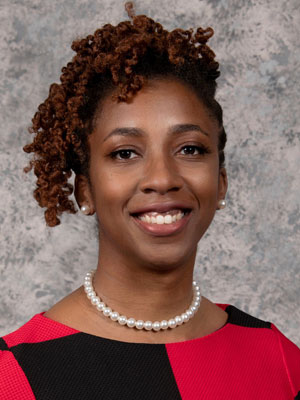Kerri Legette McCullough, EdD, LPC, LCPC, LCMHC, NCC, RN

Owner
Strong Life Counseling, LLC
Member Since 2015
What advice do you have for others in the profession?
“An internship is good experience but that’s just a starting point.”
ACA is a community of diverse, vibrant counselors and educators who are changing lives and the world at large. Originally from Columbia, S.C., Kerri Legette McCullough, owner of Strong Life Counseling, LLC in Hyattsville, Md., is a lifelong learner, educator and mentor. And she advocates for those who don’t have a voice. You might even say it’s in her DNA considering her family has ties to Thurgood Marshall.
We spoke to Kerri about her experience. Read on for more from that conversation, which has been edited for clarity.
Tell us a bit about your professional background.
I got my undergraduate degree in criminal justice from Johnson C. Smith University in Charlotte, N.C., and my first graduate degree — also in criminal justice — from North Carolina Central University in Durham. I got my second master’s degree in community counseling and an EdD in counselor education and supervision, both from Argosy University. After graduation, I worked for two community organizations in the D.C. area before starting my own private practice in 2018. I’m also an adjunct professor at Walden University and Virginia State University.
What drew you to pursue a career in counseling?
My original career goal was to be a civil rights attorney because of my family’s legacy and background. My great grandparents and great uncle were plaintiffs in the Briggs v. Elliot case, which dealt with school desegregation in South Carolina. Thurgood Marshall argued on their behalf before he pulled five cases together into what eventually culminated into Brown v. Board of Education.
There wasn’t a pre-law option at my college, so I majored in criminal justice instead. My junior year, we had a speaker from North Carolina Central who said that having a master’s degree in criminal justice gives you the opportunity to advance into management and ultimately make more money. So, I got my master’s and went into probation and parole. I saw that as a way to assist others and link them to resources in the community to help them stay out of trouble and turn their life around.
The majority of my caseload was working with people who had mental health conditions ranging from anxiety and depression to schizophrenia. While the criminal justice system does a lot of things right and has some really good programs to assist people, other times they are more punitive in nature, and I thought there’s got to be a better way to help these people. At North Carolina Central I had taken a couple of classes in the counselor education department. So, I decided to transition and go back to school to get a second master’s degree [in counseling] and my EdD.
What are your areas of expertise?
My population of choice is children and adolescents. I also work with veterans and those who have criminal charges. My niche areas are anxiety, addiction, attention-deficit/hyperactivity disorder and anger management.
Do you have any regrets about leaving the criminal justice field?
No, because I’ve taken the experience I learned as a probation and parole officer and combined that with what I learned in counseling to help affect change in people’s lives. A lot of people think of therapy as someone who goes to a high-end office to talk about their problems. But in reality, that’s not what therapy looks like for the average person. There are a multitude of settings where people go for treatment, including residential programs and outpatient clinics, not just private practices.
What is something most people may not know about you?
Most people don’t know I’m a Technical Sergeant in the District of Columbia Air National Guard or that I’m a registered nurse.
What advice do you have for others in the profession?
An internship is good experience but that’s just a starting point. If you want to go into a private or group private practice, consider working for a community organization first because you get to see all types of clients from all types of backgrounds. You also get experience with different types of insurance, including Medicaid and Medicare, and how they work.
What one piece of advice has someone given you that you’ve found helpful?
When you have a goal and you don’t know how to get there, identify someone who has already been there and receive mentorship from them. Also, always be open to opportunity. Never in my wildest dreams did I think I would serve on the Ethics and Professional Development committees as a student member and then, as a member, go on to serve on the Bylaws Committee and [as chair-elect of] the Southern Region. I didn’t see any of those opportunities coming, but I also didn’t turn down the chance to participate and be a part of the process and learn what these opportunities had to teach me.
What do you value most about being an ACA member?
Networking and community. I also value the ability to work with other counselors across multiple states and multiple types of counseling.
